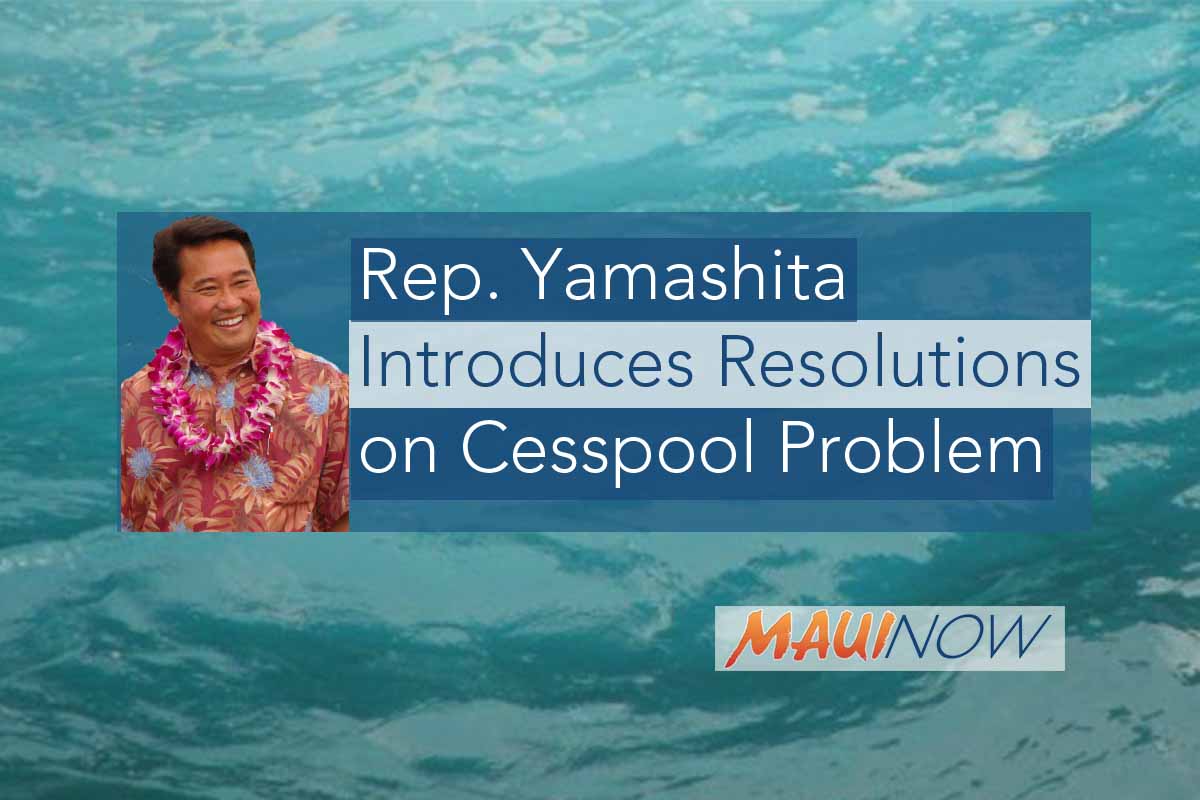Maui Rep. Yamashita Introduces Resolutions on Cesspool Problem

Maui Now graphic.
State House Representative Kyle T. Yamashita (Pukalani, Makawao, Olinda, Pūlehu, Kula, ʻUlupalakua) introduced two resolutions to address problems related to cesspools. This issue gained attention recently when the state Department of Health released a report naming the Upcountry area of Maui as one of 14 priority areas where cesspool upgrades are critically needed to protect public health and the environment.
House Resolution 99 and House Concurrent Resolution 111 call for the State Department of Health to create a Regional Task Force in each county to investigate the feasibility and potential impacts of cesspool replacement.
“People are worried about costs if they are required to replace their cesspools, about the safety of drinking water, and about possible contamination of the soil,” said Rep. Yamashita. “In order to take a reasonable and responsible approach to cesspool replacement, I have introduced a measure to ensure that each county is able work on this complex and expensive issue.
“One important thing to remember while looking for cesspools solutions is that there is no ‘one size fits all’ answer. And we need to find the right answer for Upcountry, Maui. Other areas such as Keaʻau on Hawaiʻi Island; Kōloa/Poʻipū on Kauaʻi; and Kahaluʻu, Oʻahu may have different solutions for their cesspool problems.”
According to Rep. Yamashita, the “primary concern for Upcountry, Maui is nitrate levels—chemicals found in fertilizer and sewage—in drinking water.” Upcountry Maui has 7,400 cesspools that health officials see as a potential threat to drinking water.
According to Rep. Yamashita, there are about 88,000 cesspools in the state releasing 53 million gallons of untreated sewage into the ground each day. State law requires residents to replace cesspools with a septic tank or hook up to a sewer system by 2050. That could cost about $20,000, which Rep. Yamashita says, “many residents cannot afford.”
“Finding solutions to complex problems are not easy or inexpensive,” said Yamashita. “That is why we need a diverse, knowledgeable group to look carefully at this issue and find solutions that work best for each community involved.”










